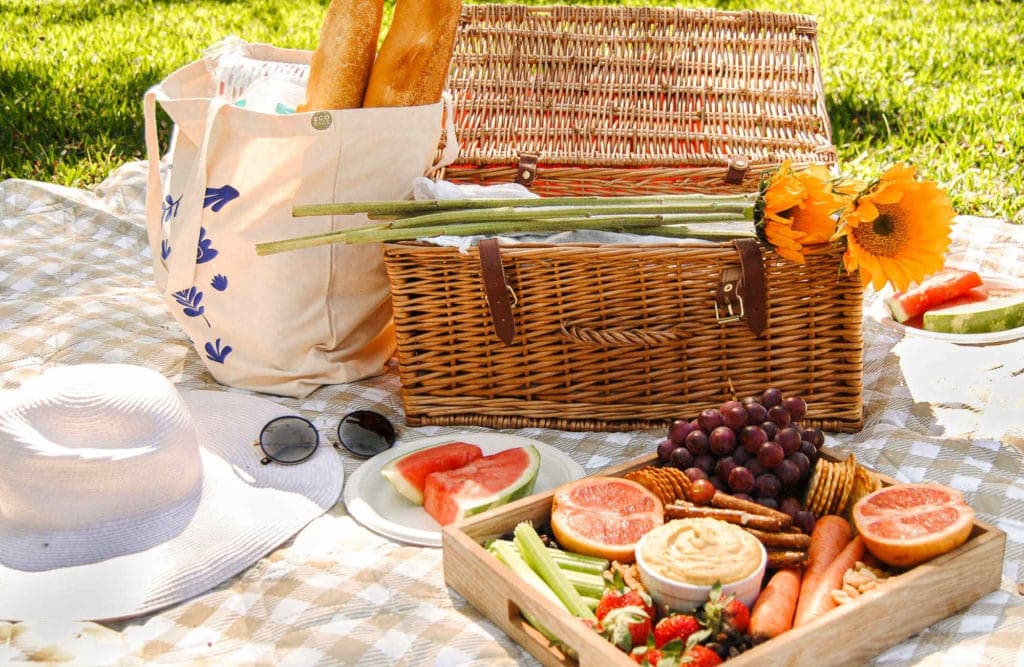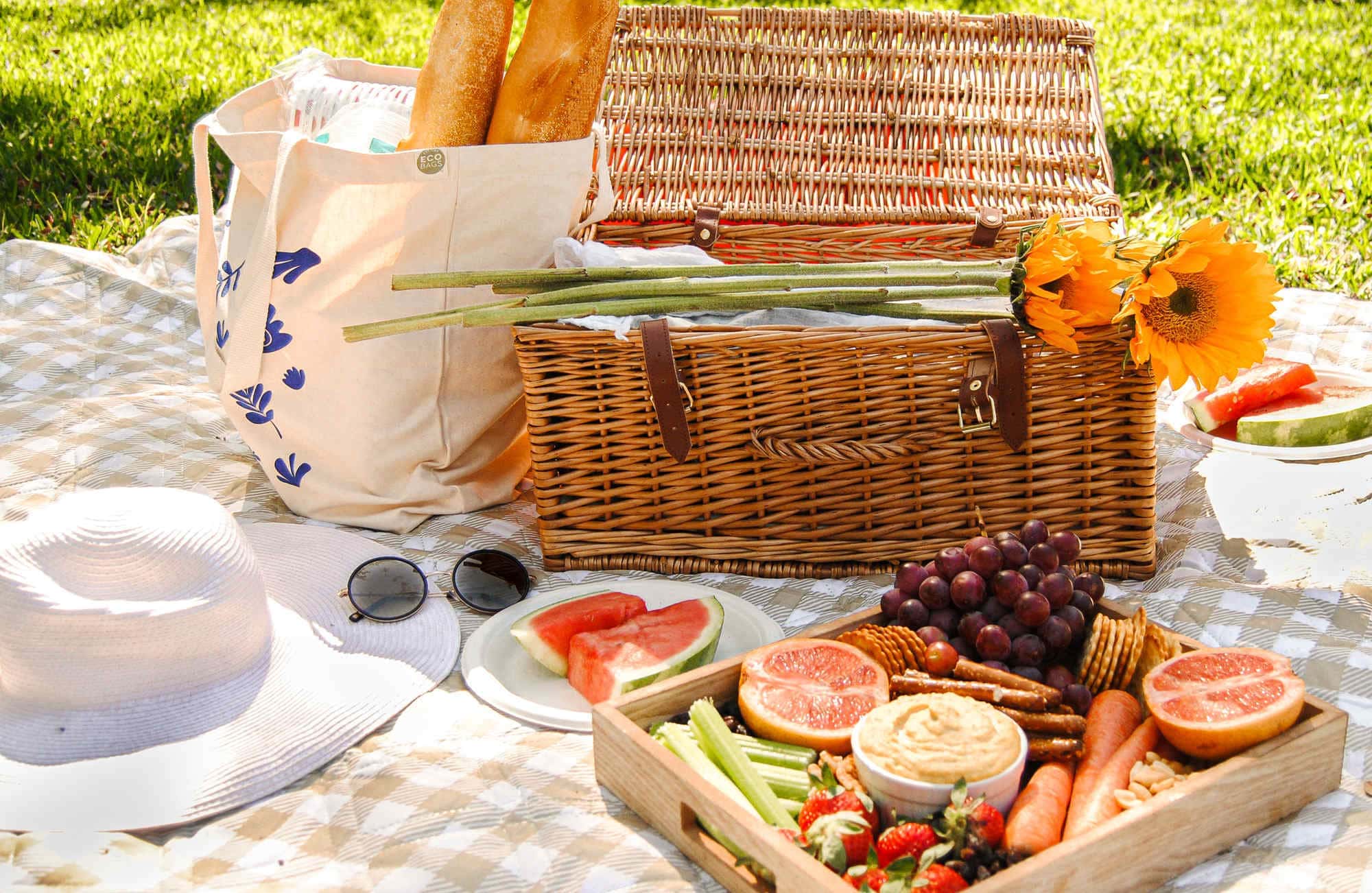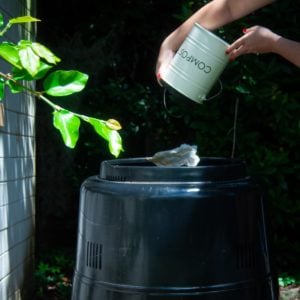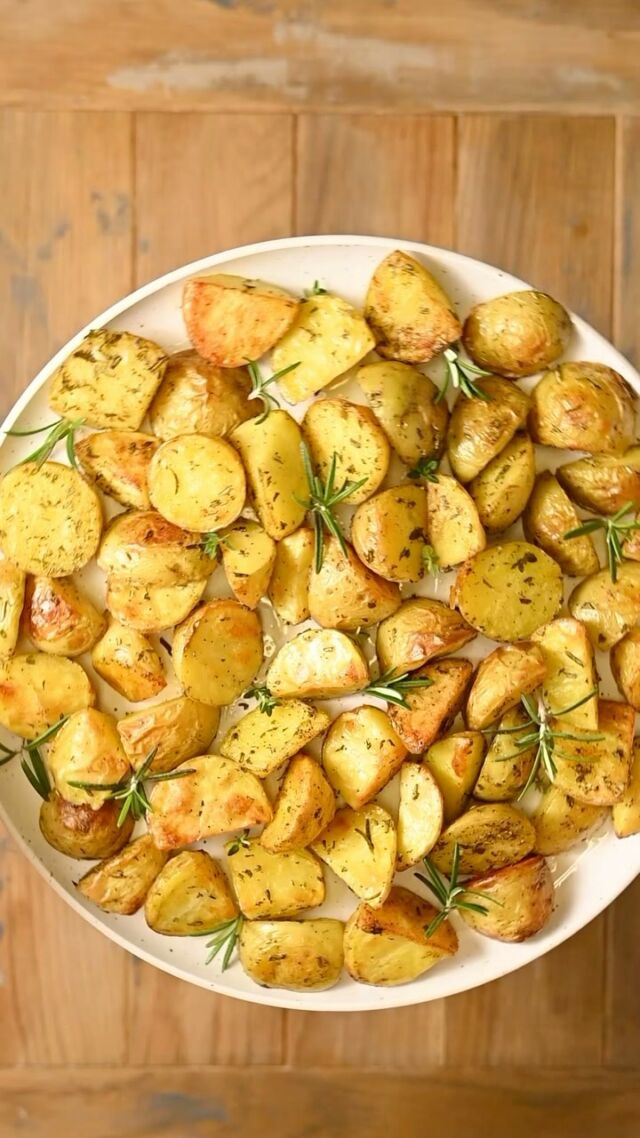Looking for inspiration to live a greener life? The great news is, there are food choices we can make to live more sustainably.
The food industry accounts for 25% of greenhouse gas emissions, emits pollutants that are impacting the health of our water, soil, air, and wildlife, and is one of the largest patrons of plastic packaging. What’s more, is that with all of the stress the industry puts on the environment to produce food, 40% of that food is wasted, filling up landfills and generating methane.
It’s clear that the food industry has a problem in the way of climate change, pollution, microplastics, and food waste and that changes need to happen on a large-scale–and soon. The good news is that we can help to drive that change.
The food industry, just like any other industry, is driven by money. And money is driven by the consumer. Hint: THAT’S YOU. Your money has power. And you are the one who decides what you spend your money on.
We, as consumers, are the driving force behind our food supply chain. What we buy generates demand. And demand drives supply.
It is up to us to create demand for more sustainable food products and to decrease demand for products that are extremely disruptive.
So, what choices can we make to reduce our ecological footprint? Let’s find out. Here’s my list of 9 food choices we can make to live more sustainably.
1. Reduce Meat and Dairy Consumption
On average, greenhouse gas emissions from plant-based foods are up to 50 times lower than animal-based foods. So reducing our demand for meat and dairy makes a big impact.
Start by practicing Meatless Monday! According to the Meatless Monday campaign, skipping one serving of beef every Monday for a year saves the equivalent emissions to driving 348 miles in a car. Here are some vegetarian and vegan recipes to get you started.
2. Shop Organic
Large-scale farmers are forced to use pesticides to boost crop growth to keep up with demand. Chemical pollutants from these pesticides often leach into nearby bodies of water, causing a disruption to marine ecosystems.
Shopping organic means you are supporting farmers that don’t use harmful pesticides that turn into pollutants.
3. Shop Locally
Another large contributor to environmental impact as it pertains to food is food miles, or, the distance a particular food item has to travel before you consume it. This includes the transport from the farm, to the grocery store, to your home, including the energy it takes to refrigerate and keep some foods frozen during transportation.
Shopping local means less food miles which in turn means, lower associated emissions.
4. Eat Seasonally
Similar to shopping locally and organically, eating seasonally is a great way to decrease demand for crops that require tons of fertilizer and long-distance travel to get on your plate.
Think of it like this, if you’re eating a summer crop in the dead of winter in a cold climate, it must have been grown, harvested, and transported to you from a place that has summer conditions. I often use this Seasonal Food Guide to stay up to date with what is in season in my area.
5. Understand Labels
Misunderstanding “use by” “best by” and “sell by” dates leads to more food waste than necessary, because people tend to throw away food when they see it’s past their “expiry date”.
But “best by” and “sell by” dates are just loose guidelines. You can eat food well past those dates as long as they still smell and look fresh.
The only expiry date label you should abide by is the “use by” date. The date specified by “use by” is usually associated with meat or dairy, and consuming food after this date can pose a health risk.
6. Plan Ahead
It sounds silly, but taking the time to plan your meals can make a big impact on how much (or hopefully little) food you end up wasting.
Taking the time to plan and make a shopping list means you are less likely to buy extra food that you won’t consume and ultimately send to a landfill.
The same goes for when you are cooking and preparing meals. Try cooking in smaller batches or eating things with like ingredients throughout the week so you’re using up the food you bought before it goes bad.
Take stock of what’s in your refrigerator often so you don’t buy extra, and pay attention to ingredients you have that need to be used up. If things are close to expiring, find ways to use them or prepare them to expand their life. For example, bake banana bread with overripe bananas, or make orange marmalade to extend the life of your oranges by a month!
7. Support Brands That Care
Look for labels like UTZ certification, The Rainforest Alliance seal, and Fair Trade certifications, all of which are independently verified companies with environmentally friendly ethos.
The FDA does not regulate labels of self-proclaimed “sustainably sourced” ingredients and practices, meaning brands can easily claim that their products are sustainable even when they are not, an act commonly referred to as greenwashing.
Looking for one of the certifications listed above guarantees you are making a smart choice to support a verified sustainable company.
This can also expand into your kitchen gadgets, appliances, and accessories. For guidance, check out my list of Eco Kitchen Essentials.
8. Compost Your Food Scraps
When food waste gets trapped in a landfill, it does not have access to the air it needs to breakdown. So instead of breaking down into organic, nutrient-rich soil, it produces methane and water.
Methane is a greenhouse gas, contributing to climate change. And as for the water? Well, it eventually sinks to the bottom of the landfill where it mixes with toxic chemicals to create a sludge called “leachate”.
Leachate can leak out of the landfill, polluting our waterways.
The good news is, composting allows organic food waste to break down into super nutrient-rich soil that is free from inorganic chemicals that contribute to the Greenhouse Effect.
A lot of cities have composting programs and will even provide you with your own free composting bin. Go to your cities website and search “compost”. to find out what resources are available in your area. Learn more about how to compost from Trash Hero World.
9. Refer to Trustworthy Resources
Whether you are looking to source sustainable seafood, seeking local organic farms, or looking for programs that can help you donate excess food, there is a resource for you. Here are just a few of my favorite resources to help you live more sustainably:
- Use this Bulk Finder to shop for food without excess plastic packaging.
- Use this Seafood Guide to help you decide which seafood to eat and where to source it from.
- Use this Food Share Program to connect with others around you to share excess food and avoid waste.
- Use this series of Home Gardening How-To’s to learn about growing your own food.
- Use this Recycling Guide to make sure you are recycling correctly according to your city’s guidelines.

Food Choices We Can Make To Live More Sustainably FAQ’s
A sustainable food choice is the act of choosing to eat something because it is produced in a sustainable way. The choice can be in reference to a diet, a meal, an ingredient, the source, or even a brand of food.
The most sustainable foods to eat are local, organic, foods that have low associated costs in terms of land use, water use, and emission of green house gases and other pollutants.








